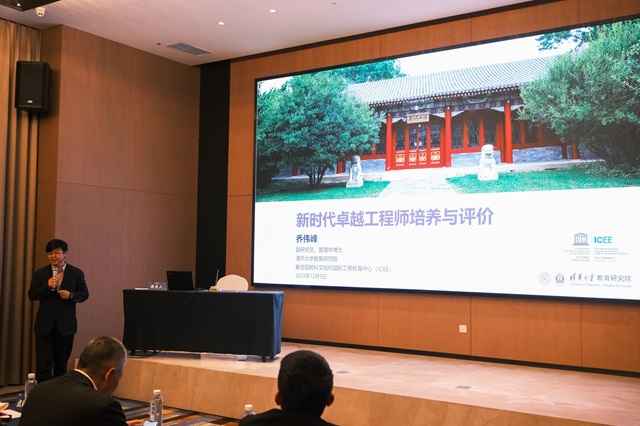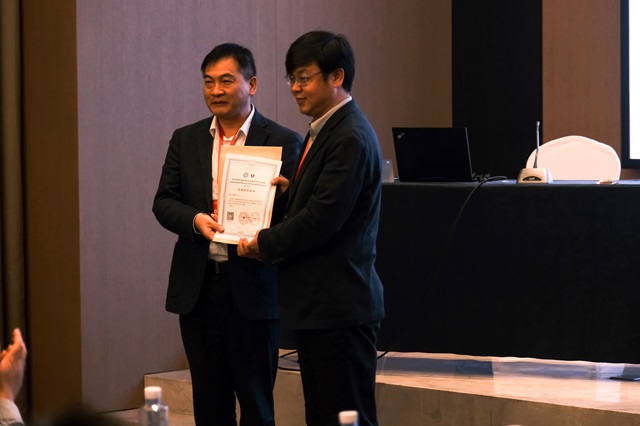Position: Home> Media Center > Events

From December 8 to 10, 2023, the Third Annual Academic Conference on Educational Evaluation themed “Educational Evaluation Reform to serve the Construction of Education Power” was convened in Chongqing City. It was hosted by the Educational Evaluation Professional Committee, Chinese Society of Educational Development Strategy and Southwest University. QIAO Weifeng, an associate professor of research of ICEE, attended the meeting and was invited to deliver a keynote speech at the Parallel Forum I themed “Theory and Practice of Higher Education Evaluation Reform”.
QIAO Weifeng delivered a speech titled “Cultivation and Evaluation of Outstanding Engineers in the New Era”. He mentioned that excellent engineers represent one of the forces underpinning national strategies, and their growth is characterized by stages and diversity. In the literature, engineering education is commonly believed to have gone through several stages, namely the technological paradigm, scientific paradigm and engineering paradigm. However, the feasibility of employing it to interpret the development path of engineering education in China is limited. In his report, QIAO Weifeng analyzed the transformation of engineering education paradigms from three perspectives of time, space and value. Based on the trends in engineering fields, engineering knowledge, engineering learning and engineering professions, he discussed challenges in cultivating excellent engineers and put forward strategies and suggestions for the classified cultivation and evaluation.

QIAO Weifeng Being Awarded Specially Invited Speaker Certificate
The Third Annual Academic Conference on Educational Evaluation involved a variety of engaging activities, including the main forum, themed parallel forums, academic discussions, and disclosure of project and research achievements. These activities spanned multiple fields, such as higher education, vocational education, primary education, regional education, technological innovation and the empowerment of artificial intelligence. More than 170 experts and frontliners were invited to deliver academic speeches and share their experiences. The conference attracted nearly 700 representatives from educational administration departments, higher education institutions, research institutes, vocational education, primary education and educational academic journals, as well as representatives engaged or interested in educational evaluation.
 京公网安备 110402430053 号
京公网安备 110402430053 号